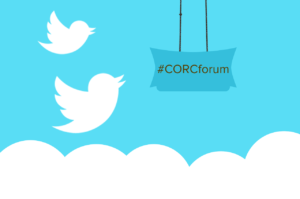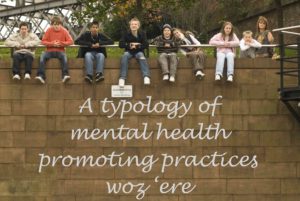
Being an evidence-based practitioner is all well and good, but what do you do when there’s very little reliable evidence on which to base your practice? Muir Gray would say that given that scenario we should base our practice on the ‘best available evidence’, but often in mental health there are few decent treatment options at hand. Caring for young people with eating disorders is a good example. Well-evidenced interventions are limited and recovery rates after treatment for anorexia nervosa patients is around 50% (Lambert, 2010).
Of course clinical evidence from research is just one part of the evidence-based triumvirate, as outlined by Sackett et al a quarter of a century ago (Sackett et al, 1996). Patient values and preferences must always be a key pilar, alongside the knowledge and expertise of the clinician. Nearly 20 years later, Mulley and colleagues writing in the same journal have called for health systems that can learn how to co-produce and deliver services that patients and the public value. ‘High integrity healthcare’ is the buzzphrase (Mulley et al, 2015), an approach that emphasises that:
more services do not guarantee more health, clinical evidence alone should not determine treatment, and healthcare is best delivered by including non-health professionals.
Wolpert and colleagues have picked up this baton and run with it impressively in a recent BMJ analysis paper that suggests we should focus on the person and not the problem when developing high integrity mental health services for children (Wolpert et al, 2017). We don’t usually blog about this kind of analysis article on the Mental Elf, but it seemed very appropriate on this occasion, given that the Wolpert paper is about (among many interesting things) the limitations of evidence-based research and the need for a new approach to challenge the status quo.
It also just so happens that today I am attending the #CORCforum meeting in London (CORC is the Child Outcomes Research Consortium), where many related issues will be discussed, so I hope that this blog will help inform our conversations.

Follow #CORCforum today on Twitter for the latest ideas about developing an outcomes-focused child and adolescent mental health service.
Too much treatment of disorders? Time for a transdiagnostic approach?
The headlines about long waiting times for young people going through mental health difficulties are stark, but what you don’t hear so much about is that once people are in treatment they often don’t do that well. 30-50% of young people with so called treatment-resistant problems don’t recover by the end of their treatment. Of course mental health services don’t want to shout this from the rooftops or they may see their budgets getting slashed, but this shouldn’t mean no discussion about the grim reality of some service provision for very ill children.
The Wolpert paper is clear about the serious limitations of current child and adolescent mental health treatment, but it also makes the point that these poor outcomes are similar to those we see for chronic health problems like diabetes in young people.
The authors are also refreshingly upfront about the potential for child mental health treatment to cause harm. Anyone who dips into our blogs from time to time will know that we’re eager for psychological interventions to be robustly evaluated in the same way as drug interventions (Mc Glanaghy, 2017). We need to be sure that treatments are safe as well as effective, but safety is often more about risk reduction and keeping the patient physically safe, rather than focusing on the psychological harm we may inadvertently be causing. Forcing troubled young people into the wrong treatment, just because it’s the only thing available will of course lead to harm.
I was struck by this idea of transdiagnostic approaches to care, which focus on the person and not the problem. Miranda Wolpert spoke eloquently about this at the MQ Science Meeting public discussion a couple of months ago. It feels intuitively right to me, but of course there are lots of hurdles to overcome if we are talking about a wholesale move away from diagnostic systems that have been extremely helpful in moving mental healthcare forward, whilst also receiving much justified criticism recently. A good starting point suggested in the article is for researchers to:
develop a typology of mental health promoting practices that go wider than traditional healthcare interventions and to evaluate such practices to compare approaches for impact and cost effectiveness.

Is anyone up for that? Researchers or research funders?
We need evidence-based healthcare, but we also need shared decision making and ways to robustly evaluate new approaches
This article is not putting the knife into evidence-based healthcare, in fact it’s really suggesting something that can work alongside and supplement existing processes like NICE guidance and Cochrane systematic reviews. For me, what Wolpert et al are suggesting is actually an intrinsic part of what Sackett, Gray, Chalmers and the other 1990s EBM massive originally proposed. That patients comes first, their values and preferences are paramount, services should be coproduced by patients and professionals, shared decisions should be made by patients and professionals, research should be led by patients and professionals. I’ve always considered all of this a key part of evidence-based healthcare, so perhaps I missed some of the meetings – it’s always possible.
Patient-centred services have been all the rage in mental health organisational GANTT charts for years now, with new approaches like personal budgets and social prescribing getting lots of attention. Of course we need reliable ways to measure the benefits and harms of these new approaches so we can consider them alongside existing ways of working. Wolpert et al are working in this space too, with their newly developed Evidence-Based Practice Unit Logic Model, which simply and elegantly aims to “help people to clarify their thinking and enable them to debate appropriate evaluation strategies more clearly”.
New integrated ways of providing care must involve parents, schools and community support
This sounds kind of obvious when you think about it. Mental health services for young people should involve non-health professionals. Parents should be seen as the effective “agents for change” that they are, and schools should be empowered to teach mental health literacy and become a fundamental part of mental illness prevention and mental health promotion. This is already happening and there’s strong evidence for parenting and school based programmes that can make a big difference.
The evidence for community based schemes is much less clear cut, so further work is needed there, as it is for digital mental health interventions in young people, which will no doubt become an even bigger area of interest over the coming years (see Victoria Betton’s recent blog on a new review of Digital Health in Young People).
We must get better at measuring what matters
Clearly, focusing on outcomes that matter to young people is a good way forward, but it’s also vital that we have open and honest conversations about what to do next if these outcomes aren’t achieved.
The inconvenient truth is that child outcomes are not routinely measured or collected in UK mental health services, so we really have very little idea what’s going on in the real world. The recent CORC report on child & parent reported outcomes (Wolpert et al, 2016) is an important first step in improving our understanding, but the (admittedly quite unreliable) findings so far make for difficult reading: by the end of treatment 1 in 3 children are symptom free, 1 in 2 substantially improved, and 9 in 10 have moved towards their treatment goals.
If you are interested in finding out more about why outcomes are so important in this field, follow #CORCforum today for the latest on building an outcomes-focused CAMH service. I’d also highly recommend visiting the CORC Database of Outcome and Feedback Measures, which provides access to a wide range of tools for measuring mental wellbeing, disorders, quality of life and much more.
Take home messages
The key messages from this paper are:
- Don’t assume access to a specialist mental health professional will always be the best way to address mental health problems
- Ensure patients are active participants in making choices about their healthcare
- Consider options for how to support mental health and wellbeing drawing on self, school, and community resources
- Measure what matters most to patients
It’s a thought-provoking rallying cry for the mental health community to work together in a way that builds bridges between dusty academia and real-world firefighting at the frontline of care. There’s a lot to admire in this approach, but also many significant obstacles to overcome if we are to make people-focused transdiagnostic care a reality.
Links
Primary paper
Wolpert M, Vostanis P, Martin K, Munk S, Norman R, Fonagy P. (2017) High integrity mental health services for children: focusing on the person, not the problem. BMJ 2017; 357 :j1500.
Other references
Lambert MJ. (2010) Prevention of treatment failure: The use of measuring, monitoring, and feedback in clinical practice. American Psychological Association, 2010 doi:10.1037/12141- 000.
Sackett David L, Rosenberg William M C, Gray J A Muir, Haynes R Brian, Richardson W Scott. Evidence based medicine: what it is and what it isn’t BMJ 1996; 312 :71 www.bmj.com/content/312/7023/71
Mulley A, Richards T, Abbasi K. (2015) Delivering health with integrity of purpose. BMJ 2015;357:h4448. doi:10.1136/bmj.h4448 www.bmj.com/content/351/bmj.h4448
Mc Glanaghy E. (2017) Negative Effects Questionnaire: measuring the potential harm of psychotherapy. The Mental Elf, 9 Mar 2017. https://www.nationalelfservice.net/treatment/psychotherapy/negative-effects-questionnaire-measuring-the-potential-harm-of-psychotherapy/
THRIVE Framework for services (2016) http://www.corc.uk.net/media/1466/2016thrive_elaborated_2nd_edition.pdf
Betton V. (2017) Digital health for young people with mental health problems: silver bullet or red herring? The Mental Elf, 30 Jan 2017. https://www.nationalelfservice.net/populations-and-settings/child-and-adolescent/digital-health-for-young-people-with-mental-health-problems-silver-bullet-or-red-herring/
Wolpert M, Jacob J, Napoleone E, Whale A, Calderon A, Edbrooke-Childs J. (2016) Child- and Parent-reported Outcomes and Experience from Child and Young People’s Mental Health Services 2011–2015. December 2016 Executive Summary http://www.corc.uk.net/media/1173/201612child_and_parent-reported_outcomes_and_experience_from_child_and-young_peoples_mental_health_services_2011-2015_exec_summary.pdf


Thanks Andre for great summary of our paper. In terms of taking forward transdiagnostic approaches I think we need to move away from the idea that intervention is inevitably linked in some one-to-one way to detailed understanding of cause of problem and focus much more on research about different forms of intervention effect change. I think Prof Susan Michie has led the way with her taxonomy of behaviour change interventions…we need the same for mental health. Crude analogy: I assume that research does not move forward in orthopaedics by considering the different ways people break their legs, but rather by learning about different ways legs mend.
Thanks Miranda, that’s a really useful analogy.
For anyone who wants to explore Susan Mitchie’s Behaviour Change Taxonomy in more detail, the training website is available here: http://www.bct-taxonomy.com/about and you can follow them on Twitter at https://twitter.com/ucltaxonomy
[…] Focus on the person, not the problem #CORCforum […]